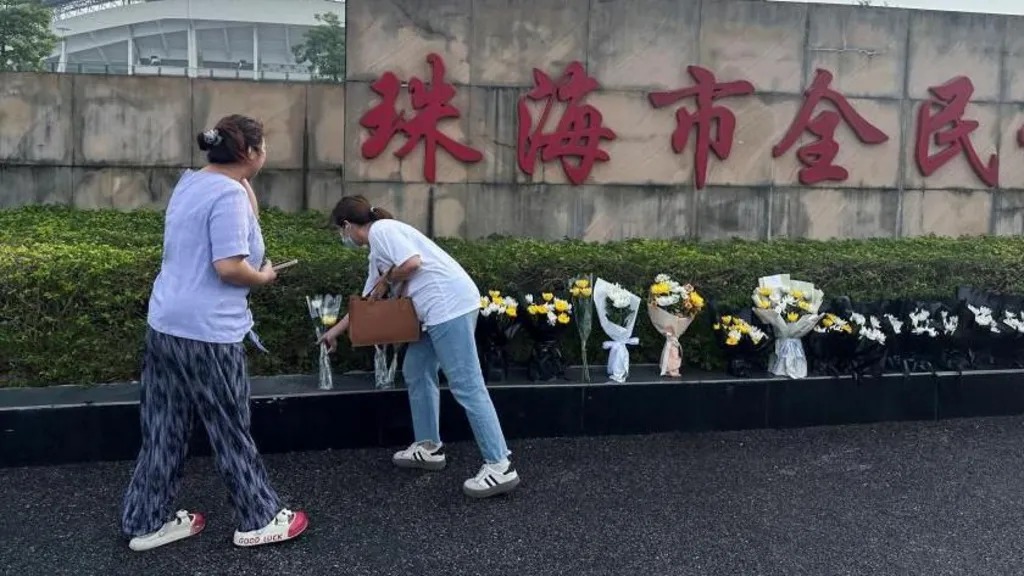
‘Taking Revenge on Society’: Deadly Car Attack Sparks Questions in China
The recent deadly car attack in Zhuhai, China, which killed 35 people, has sparked national and international conversations about a troubling rise in public violence. The attack, believed to be driven by personal grievances, is shedding light on the growing social phenomenon of “taking revenge on society,” where individuals act out violently in response to personal frustrations. Chinese authorities have been quick to limit public discussion on the incident, controlling the narrative through censorship on social media and news outlets.
A Growing Trend of “Revenge on Society”
The driver, a 62-year-old man reportedly disgruntled over a divorce settlement, drove into a crowd exercising at a stadium in Zhuhai on Monday night. President Xi Jinping has promised “severe punishment” for the driver, who remains in a coma due to self-inflicted injuries. This tragic attack follows a series of violent events in China, including recent stabbings in Beijing and Shanghai.
Chinese citizens have taken to social media to express shock and outrage, questioning what drives individuals to such drastic actions. One widely shared comment on Weibo questioned, “How can you take revenge on society because your family life is not going well? You’ve taken the lives of so many innocent people.”
Some users have linked the increase in attacks to societal pressures and a lack of job security, suggesting that stress and dissatisfaction could contribute to such extreme behaviors. One WeChat user commented, “If there is a widespread lack of job security and huge pressure to survive… then society is bound to be full of problems, hostility, and terror.”
Social Media Censorship and Limited Coverage
As is common in politically sensitive cases in China, authorities have swiftly censored online discussions about the Zhuhai attack. Posts, comments, and videos documenting the tragedy have been removed from social media platforms, and journalists covering the story have reported being restricted. Several Chinese media outlets disclosed to BBC Chinese that they received direct instructions not to report on the attack in its immediate aftermath. When news coverage did surface, it focused on official statements from authorities and President Xi.
This censorship has prompted further backlash from citizens, with one online user stating, “In the eyes of those in power, aeroplanes are more important than human lives,” referencing the international airshow in Zhuhai that continued as the tragic event unfolded. This perspective reflects a sentiment that public safety concerns are taking a back seat to political optics.
Emotional Testimonies and Public Outcry
Despite censorship, stories from those affected by the attack have circulated widely. One account shared by a user described their mother’s friend, who was killed while on her evening walk at the stadium. Another individual described their mother’s critical condition in intensive care and criticized the delay in official information. “Up to ten hours after it happened, there were no statistics on the casualties, no statements from the police,” the post read.
These testimonials underscore public frustration with both the rising incidents of indiscriminate violence and the limited transparency in official responses.
Examining Root Causes and Societal Pressures
While the tragic car attack in Zhuhai is one of the deadliest in recent memory, it points to a broader trend of rising public violence and societal discontent in China. As social media users discuss deeper societal factors, from economic stress to mental health struggles, the debate continues on what can be done to address these challenges at a systemic level.
China’s response to these incidents highlights a balancing act between maintaining public order and addressing root causes of public discontent. The rise in attacks has sparked urgent questions about the future of public safety and social cohesion, leaving many to wonder if these incidents are symptomatic of a deeper societal crisis.
External Link:
Read more about the latest news from China





